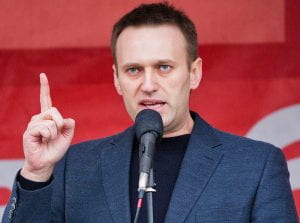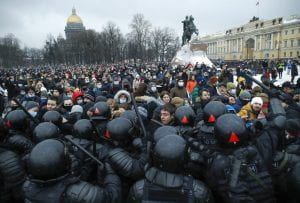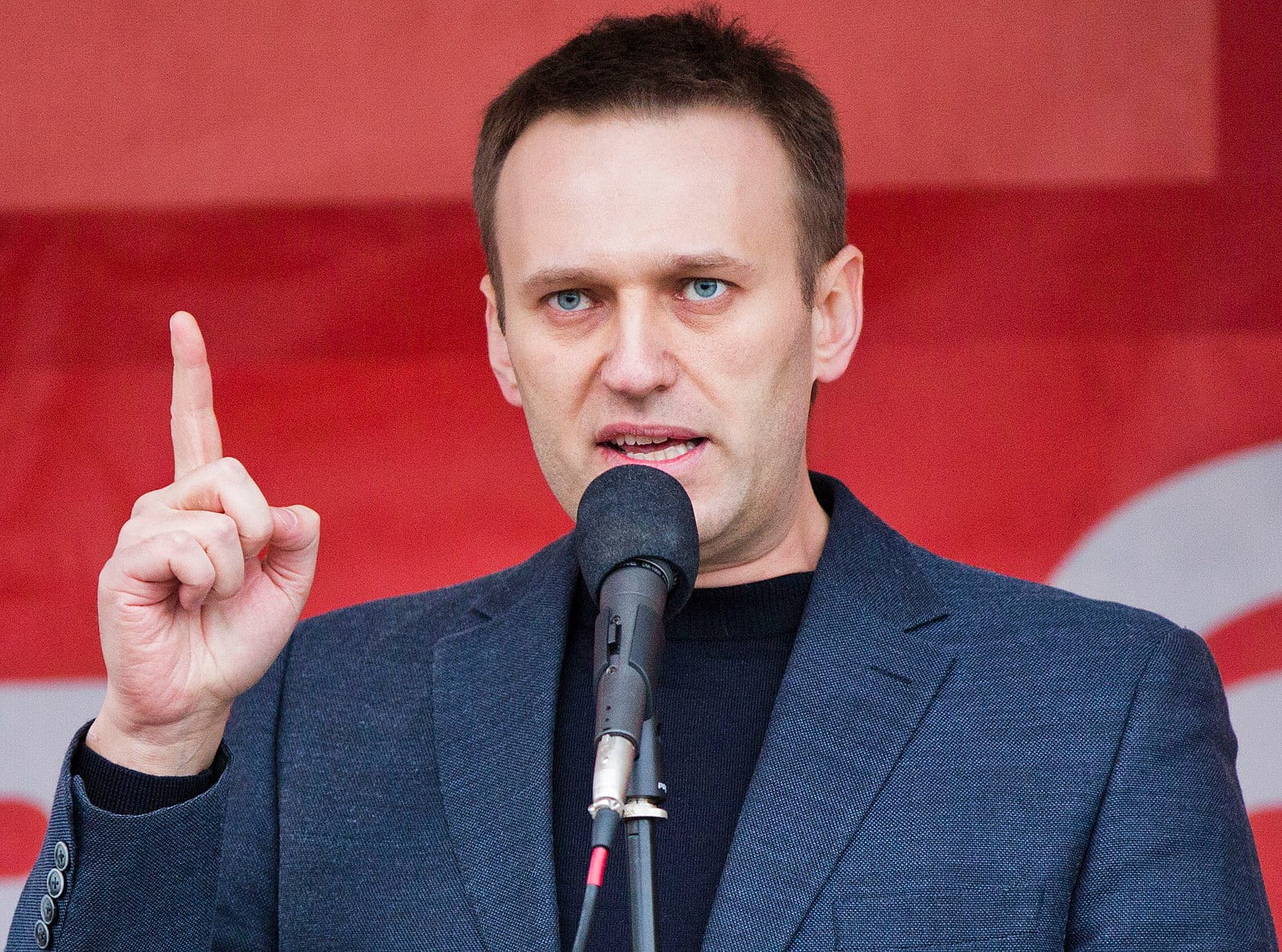Recently, upon landing at Sheremetyevo Airport in Moscow, avowed critic of Vladimir Putin and the Kremlin, Alexei Navalny, was arrested for allegedly violating the terms of a suspended sentence related to a 2014 embezzlement charge. The European Court of Human Rights later ruled that that trial had been politically motivated and resulted in an unfair conviction. The arrest came as no surprise; Navalny had made clear that he expected to be arrested when he returned home to Russia. Still, the Russian government’s blatant repression of one of their loudest critics inspired outrage and disappointment from around the world.

Navalny had been taken to hospital in Germany in after he became very ill aboard a flight from Tomsk to Moscow on August 20th and nearly died. He was in a coma for over two weeks before making a remarkable recovery. The German government in September determined with “unequivocal proof” from toxicology tests that Navalny had been poisoned with the Soviet-era nerve agent Novichok. In December, investigations by The Insider and Bellingcat with CNN and Der Spiegel implicated Russia’s Federal Security Service in the attempt on Navalny’s life. Russian president Vladimir Putin, who has been a target for criticism by Navalny and his Anti-Corruption Foundation for years, called media reports that he had ordered Navalny’s poisoning a U.S. backed plot to discredit him. Putin suggested that Navalny was not important enough to be poisoned, adding “[i]f someone had wanted to poison him, they would have finished him off.”
Amnesty International last week added Navalny to its list of prisoners of conscience as a result of his arrest. Commenting on his detention, Natalia Zviagina, Amnesty International’s Moscow Office director, said, “Aleksei Navalny’s arrest is further evidence that Russian authorities are seeking to silence him. His detention only highlights the need to investigate his allegations that he was poisoned by state agents acting on orders from the highest levels.”
Protests in response to Navalny’s arrest and the widespread corruption amongst Russian political leaders erupted January 22nd. As of when this was written, over three-thousand our-hundred protestors had been arrested, including Navalny’s wife, lawyers, and more than twenty-five known associates. Most are being held without charge. In Moscow, more than fifteen-thousand protestors gathered and endured temperatures as low as negative fifty-eight degrees Fahrenheit.

Prisoners of conscience are those who are imprisoned because of their race, sexual orientation, religion, or political views, as well as those under persecution for the nonviolent expression of conscientiously held beliefs. The term was coined in 1961 in an article The Forgotten Prisoners by Peter Benenson, a lawyer and activist who founded Amnesty International. Today, Amnesty International is actively campaigning for the release of around one-hundred fifty documented prisoners of conscience, although the number of people who meet the definition is certainly much higher than that. Amnesty International figures that there are “likely thousands more”. Currently, Russia, Saudia Arabia, Iran, and Belarus have the highest number of known, documented prisoners of conscience, although information about political prisoners is sometimes heavily restricted, particularly in China and North Korea. It is likely that there are dozens, if not hundreds more prisoners of conscience in these countries alone.
Last year, Amnesty prisoner of conscience Rubén González was released after being held since 2018 on charges that he had “insulted” the armed forces in Venezuela. González had been acquitted in 2014 after a five year trial for organizing a strike. While he was imprisoned, he was the only civilian prisoner in the military wing of the La Pica prison in Monagas. UN High Commissioner for Human Rights, Michelle Bachelet, criticized González’ conviction and the UN Working Group on Arbitrary Detention characterized his imprisonment as arbitrary. Amnesty International’s campaign for González’ release is representative of their work across the globe, showing that international condemnation is an effective tool against the incarceration of prisoners of conscience.
In Iran, Nasrin Sotoudeh is a human rights lawyer who has twice been arrested for her campaigns both for opposition candidates and for women’s rights. In 2010, Sotoudeh was charged with spreading propaganda and conspiring to harm state security. The Washington Post characterized the arrest as emblematic of “an intensifying crackdown on lawyers who defend influential opposition politicians, activists, and journalists.” During her first imprisonment, Sotoudeh staged three hunger strikes, with two of them lasting four weeks and seven weeks respectively. In 2018, Nasrin was arrested again, and charged with espionage, dissemination of propaganda, and disparaging the Supreme Leader, Ali Khamenei. For this, she was sentenced to five years.
Accurate information about prisoners of conscience can be hard to come by, because the states that are more commonly imprisoning people for ‘thought crimes’ are also the states more likely to be highly suppressive of reports about their human rights abuses. For instance, in Saudi Arabia, estimates of the number of prisoners of conscience range from absolutely none, reported by the Ministry of Interior, to thirty-thousand reported by the Islamic Human Rights Commission and the BBC. In addition to their arbitrary detention of political activists, Saudi Arabia has also been heavily criticized by human rights bodies for their prolific use of capital punishment, including against people who were children when they were accused of crimes. In 2016, Ali Sa’eed al-Ribh was executed, despite the government admitting during trial that he was under the age of eighteen at the time of his alleged crimes. Because Saudi Arabia is party to the United Nations Convention on the Rights of the Child, they are legally required to ensure that no one under the age of eighteen at the time of a crime is sentenced to death or to life in prison without the possibility of release. Currently, several young Saudis are awaiting execution, including Ali al-Nimr, who was seventeen, Abdullah al-Zaher, who was sixteen, and Dawood al-Marhoon, who was seventeen when they were arrested. In addition, in 2017, Abdulkareem al-Hawaj’s death sentence was upheld on appeal for crimes committed when he was sixteen. All of their crimes relate to anti-government protests.

In 2018 and 2019, Saudi Arabia came down heavily on feminist activists, including Loujain al-Hathloul, who has been imprisoned since May 2018. al-Hathloul is known for her campaigns against the driving ban, and has been detained many times previously for offenses such as driving a car and appearing on camera with her face and hair uncovered. For the first several months of her detention, she was not allowed to contact her family or lawyer. al-Hathloul was subjected to beatings, waterboarding, electric shocks, and sexual abuse. During her first trial in March of 2019, she was charged with “promoting women’s rights, calling for the end of the male guardianship system, and contacting international organizations and foreign media.” Saudi Arabia has, over the last decade or so, made some purely performative and milquetoast changes to their repressive policies. In 2017, King Salman decreed that women be allowed access to some government services without the consent of a male guardian. The case of al-Hathloul and others show without a doubt that nothing substantive has changed. Saudi Arabia continues to be one of the most repressive powers in the world — for women, for activists, for critics of the regime. All of this from a country that we, in the United States, continue to support economically and diplomatically. And, for the last four years, have only become closer with.
The plight of prisoners of conscience around the world should be a priority for any freedom loving people and all freedom loving states. Amnesty International continues to do important work to bring awareness to and win freedom for political and ideological prisoners. Hopefully, governments that believe in liberty will start to hold each other accountable and unite against states who do not. Until the last prisoner of conscience is freed.
Further reading:
Who Are Prisoners of Conscience?
List of Designated Prisoners of Conscience

